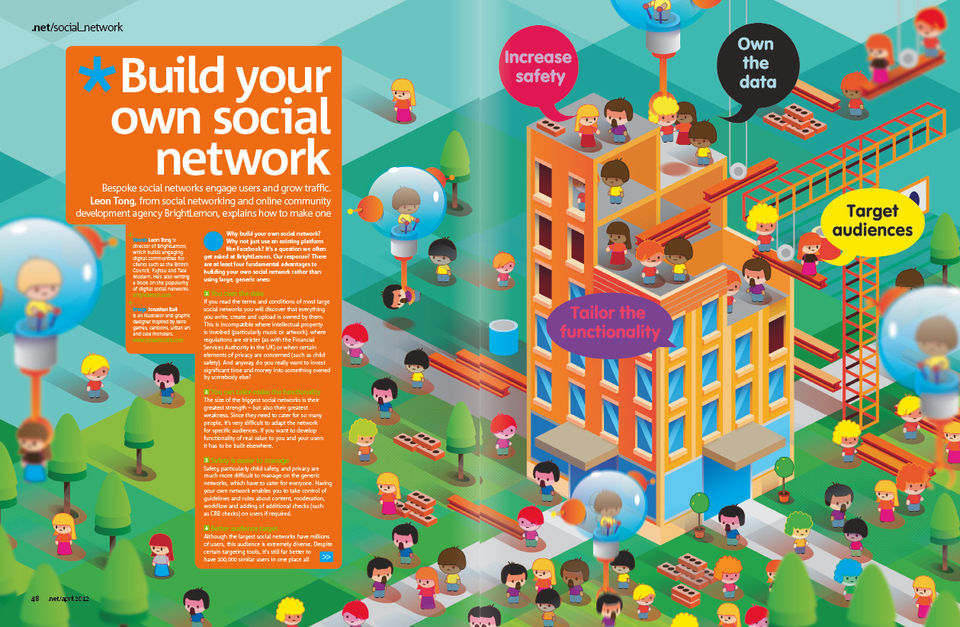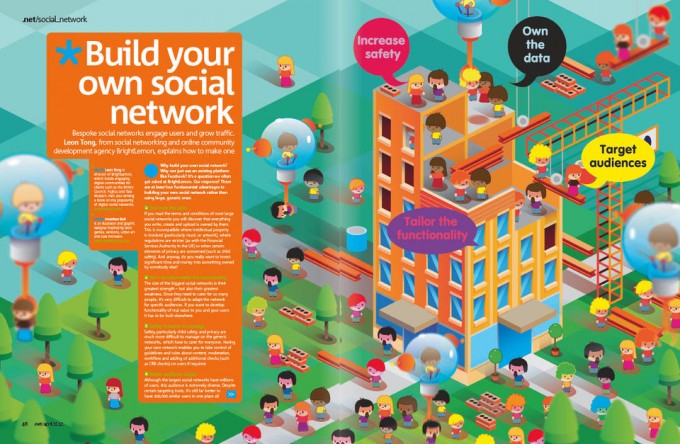
The digital world is advancing faster than we ever thought possible. Early visions of how the Internet might look have been realized and surpassed. From banking and shopping to dating and friendships, modern lives are managed online to a larger extent than utopian expectations ever predicted. What does that mean for web designers and developers?
Can 1.2 Billion Internet Users be Wrong?

In December 2011, a comScore Report, “It’s a Social World: Top Ten Need-to-Knows About Social Networking,” found that social networking sites are used by 92% of the world’s Internet population. This astonishing statistic equates to approximately 1.2 billion worldwide users. Analysis further pointed out that social networking is by far the most engaging online pursuit; almost one out of every five minutes spent online was spent on sites of this nature. Everyone agrees that Facebook, with its almost 900 million members, is the most dominant of the pack. Does this mean that every website of the future should look to somehow integrate to at least some degree with the social networks? To a certain extent that is true. There is indeed a high correlation between social votes and site popularity; the fact that Google Analytics offers traffic analysis based on how many Google+ votes are received is a clear indication that the relationship exists, at least on some level.
Is Bespoke Social Networking the Future of Web Development
Leon Tong, Director of Bright Lemon, a London-based agency specializing in social networking and online community development, goes one step further. In a six page feature for .Net magazine, he extols the virtues of building your own social network. He identifies four fundamental advantages of building your own bespoke network over simply piggybacking on one of the larger and undoubtedly more generic ones.
Data Ownership: the terms and conditions of the majority of the larger social networks state that they own everything that users write, create or upload. Tong believes this is incompatible when it comes to intellectual property such as music or artwork. Furthermore, he asks the question should we be putting so much effort into something that we do not own. If you own the data, it can be easily used to enrich and enhance the user’s experience.
Tailor Made Functionality: Tong believes that the greatest strength of the well-known social networks is their size. He also considers it to be their greatest weakness. These networks must cater for a massively diverse user base. As the saying goes “you can’t please all of the people all of the time.” Bespoke social networks allow developers to adapt technologies towards very specific audiences. Desired applications and functionality can be developed to any extent you wish, and you won’t be subject to changes beyond your control.
Manageable Safety: There has been much made about the safety of children or apparent lack of it on our social networks. Whether or not children should be allowed to open accounts or not is a different question, and a decision to do so is wide open to abuse anyway. By building our own networks for considerably smaller groups of people, we are able to better control agreed guidelines concerning appropriate content and usage.
Targeted Audience: A bespoke network will have fewer participants than Facebook, Google Plus, Twitter and MySpace. A user base of 100,000 is achievable, and while this is a drop in the ocean compared to the biggest of the social networks, Tong points out that it is infinitely better to have a smaller user base who is naturally interested in your product, service or cause than it is to have to fight your way to them through millions of other users.
Fortune 500 Companies are Leading the Way

Leading brand organizations such as Symantec, Virgin and Nike have already built their own social networks. In fact, in the latter part of 2010, Forrester Research revealed that over 50% of Fortune 500 companies had already built or were taking definitive steps towards their own social network. Tong believes that the next generation of social networks will be smaller and more tailored versions than the universal platforms we are familiar with today.
Web Development for the Future

If Tong is to be believed, the trend towards bespoke social networks will continue to gain pace in the coming year and beyond. Web designers and developers will need to be versed on the skills required to build and maintain networks such as these. The focus will surely be upon building rich and functional apps tailored towards specific interests and activities, although there is a lot to be said for seeing how the leading players do things. Cash-rich firms like Facebook and its counterparts have invested heavily in research into how things should look. Keeping to the widely adopted visual language should go some way to ensure uptake of any bespoke social networks is a smooth affair. Tong’s vision for the future should guarantee plentiful work for those in the technology industry.






Social networks like Facebook has huge power these days to spread the word. Everyone can become journalist and get their messages read by millions of people around the world.
I very much look forward to how internet will look like in 5 years because there is huge chance that Facebook will disappear just like MySpace and others.